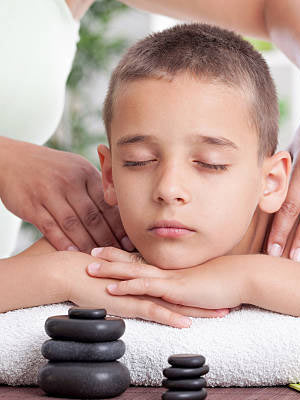- +91 7680015156
- advaithacdc@gmail.com
Massage therapy
- Home
- Services
- Massage therapy
In the realm of child development, various holistic approaches have gained prominence for their positive effects on physical and emotional well-being. One such method that has garnered attention is massage therapy. Contrary to common belief that massage is reserved for adults, its benefits extend to the younger demographic, contributing significantly to the overall development of children.
What is Massage Therapy for Children ?
Massage therapy involves the manipulation of soft tissues to promote relaxation, alleviate tension, and enhance overall health. When adapted for children, it becomes a gentle and soothing practice, considering their unique needs and sensitivities.
Physical Benefits
Muscle Development
Massage aids in the growth and development of muscles in children. The gentle strokes help improve circulation, leading to enhanced oxygen and nutrient delivery to muscle tissues.

Improved Sleep Patterns
Children who receive regular massage often experience better sleep quality. The relaxation induced by massage promotes the release of serotonin, contributing to a more restful sleep
Enhanced Immune System
Research suggests that massage therapy can positively influence the immune system by increasing the production of white blood cells. This can help children build resistance to common illnesses.
Emotional and Psychological Benefits
Stress Reduction
Children, like adults, can experience stress. Massage provides a calming effect, reducing the levels of stress hormones and promoting emotional well-being.
Bonding and Attachment
Through the nurturing touch of massage, a strong bond can form between the child and the caregiver. This physical connection fosters a sense of security and trust.
Improved Concentration
Children who receive massage therapy may exhibit improved concentration and focus. The relaxation of both body and mind contributes to a more attentive and engaged state.
Adapting Massage for Different Age Groups
Infants
For infants, gentle strokes and soft pressure are key. Focus on soothing techniques to aid digestion, promote relaxation, and enhance sensory awareness.
Toddlers
As children grow, adapt massage to cater to their energy levels. Incorporate playful movements to keep them engaged while addressing any specific physical or developmental concerns.
School-Age Children
With older children, massage can be more structured. Target areas of tension or discomfort, and involve them in the process by encouraging open communication.
In massage therapy for children is a holistic approach that contributes positively to both physical and emotional development. Its gentle techniques, when adapted for various age groups, can become an invaluable tool for caregivers seeking to support their child's overall well-being. Integrating massage into the routine not only provides a myriad of health benefits but also strengthens the bond between caregivers and children, fostering a nurturing environment for optimal growth.

